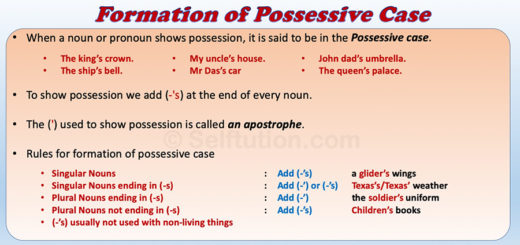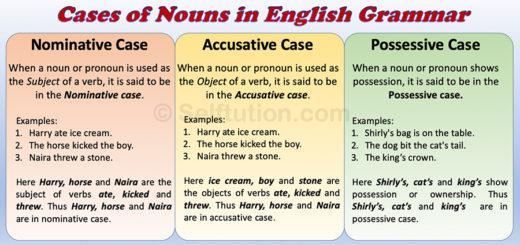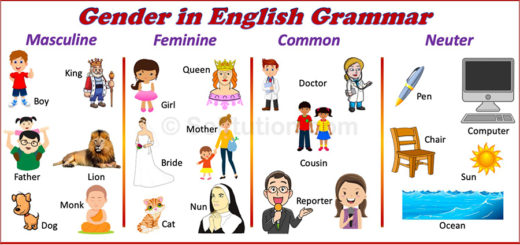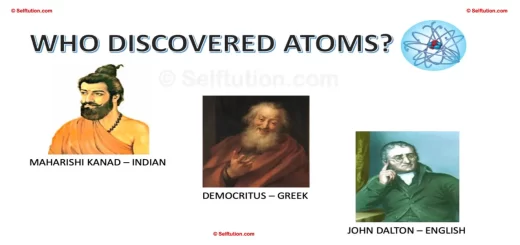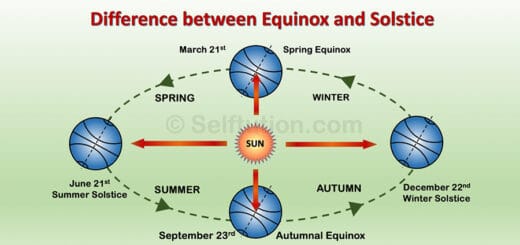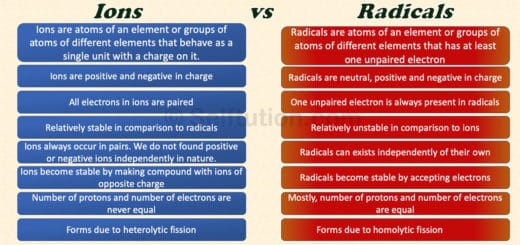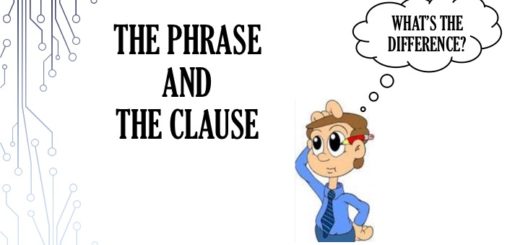Kinds of Nouns | Proper, Common, Abstract, Collective
There are four kinds of nouns in English;
Apart from the above, we can also classify them as:
Before we proceed further, it is important to know what a noun is.
NOUNS
There are eight parts of speech in the English language, and a noun is one of them.
A noun is the name of a person, place, or thing. It may also name a feeling or idea.
For example, the words boy, girl, George, New York, Everest, hospital, river, army, beauty, love, and kind are all nouns. In short, we can say that a noun is a naming word, or it is the name of anything.
PROPER NOUNS
A proper noun is the one that names a particular person, place, or thing.
The word ‘proper’ means ‘one’s own’. Hence, a Proper name is a person’s own name.
Examples of proper nouns are:
- Sachin, Robert, Abraham, Monika, Susan, etc., names a particular person.
- Jaipur, Chicago, Mexico, London, Moscow, etc., names a particular place.
- Everest, Ganga, Titanic, January, Sunday, etc. names a particular thing.
A proper noun always begins with a capital letter.Some examples of proper nouns are the names of persons, villages, towns, cities, countries, monuments, rivers, ships, mountains, months of the year, days of the week, festivals, books, etc.
COMMON NOUNS
A common noun is the one that gives a common name to persons, places, or things of the same kind.
Or
A common noun is a name given in common to every person or thing of the same kind.
The word ‘common’ here means ‘shared by all’.
The words book, pen, river, mountain, train, bird, animal, and city are all examples of common nouns. Ganga, Nile, and Amazon are the names of rivers. The word river is a common noun. It is the name shared by all three. But Ganga is the name of a particular river flowing in India. So, the word Ganga is a proper noun. Similarly, the words Nile and Amazon are also proper nouns.
ABSTRACT NOUNS
An abstract noun is the name of any state, quality, action, or feeling that we can only think of or feel but cannot touch or see.
The word ‘abstract’ here means ‘existing in thought’.
So, words like heat, beauty, truth, love, anger, height, are all examples of abstract nouns. We can feel the heat, but we cannot touch or see it. What we touch or see is a hot object and not heat. Similarly, we can think of love, but we cannot see or touch love.
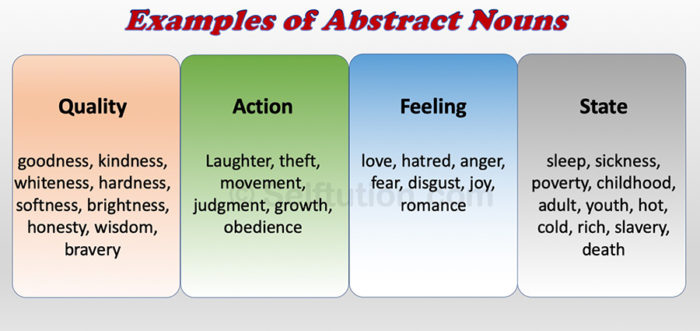
Examples of abstract nouns with respect to quality, action, feeling, and state
COLLECTIVE NOUNS
A Collective noun is the name of a collection of persons or things taken together and spoken as one whole.
Some examples of collective nouns are crowd, mob, team, flock, herd, army, fleet, nation, bunch, pack, etc.
Some more examples of collective nouns concerning people, animals, and things:
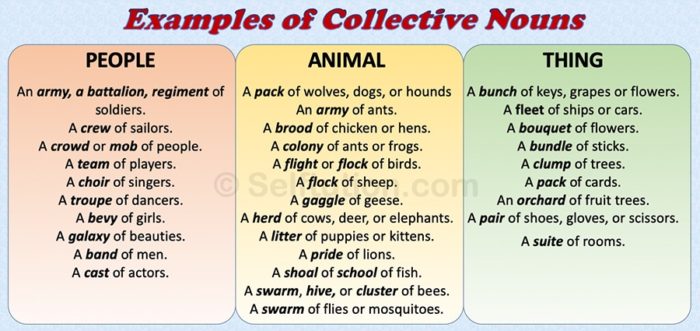
Examples of collective nouns concerning people, animals, and things
ABSTRACT AND CONCRETE NOUN
We can also classify nouns as abstract and concrete.
Abstract nouns name feelings (hate, love), qualities (courage, softness), states of mind (hope, trust), or ideas (education, knowledge). All these words have no physical form that we may touch or see. They exist in thoughts only.
Whereas, concrete nouns stand for something that we can see or touch, something that has a physical form, something that occupies space and has mass. Concrete nouns usually refer to animals (tiger, bird), people (engineer, leader), places (hospital, office), and things (watch, table, pen).
COUNTABLE AND UNCOUNTABLE NOUN
To state simply, the things which we can count are countable nouns, and the ones which we cannot count are uncountable nouns.
Words ball, boy, bird, dogs, kite, pen, table, computer, chairs, girl, etc. are examples of countable nouns. They have both singular and plural forms. Whereas, words like milk, air, light, love, honesty, courage, education, etc. are examples of uncountable nouns. They have a singular form, but no plural.
You may also like…... Types of Chemical Reactions in Chemistry

